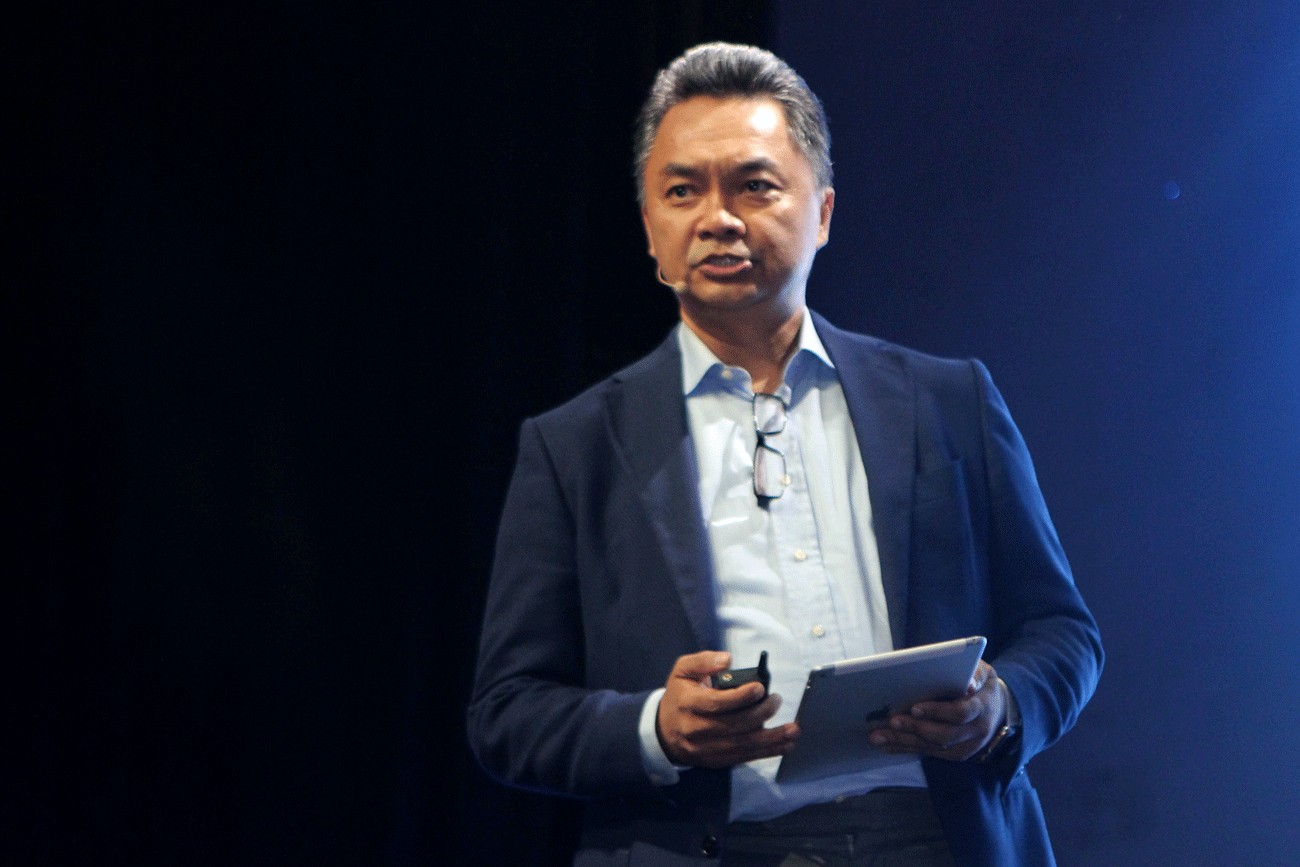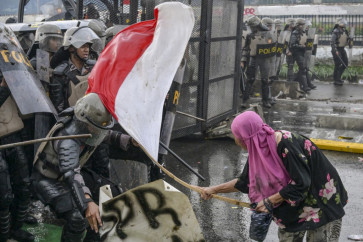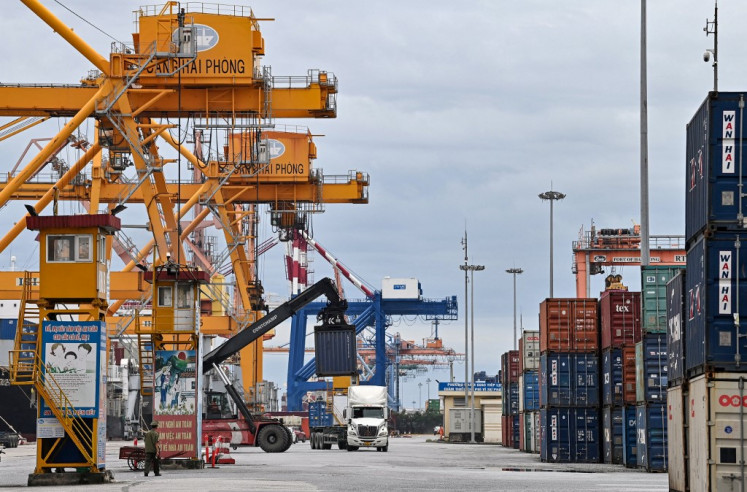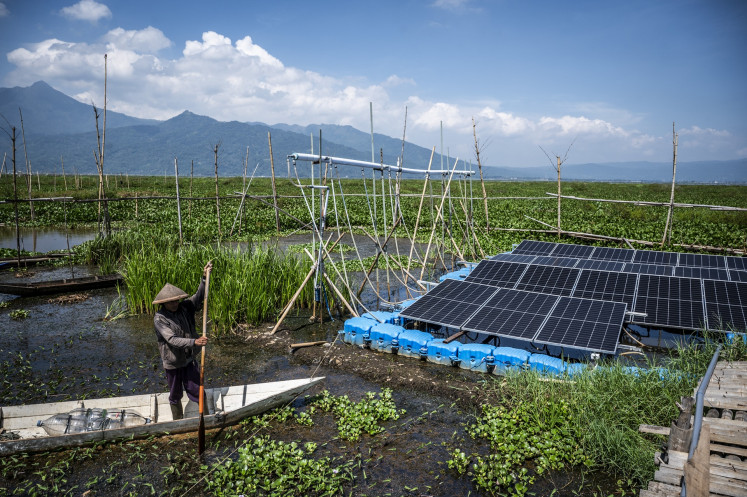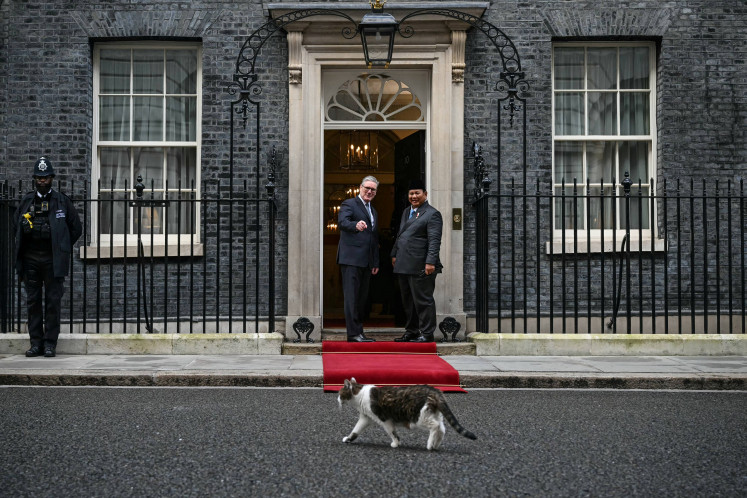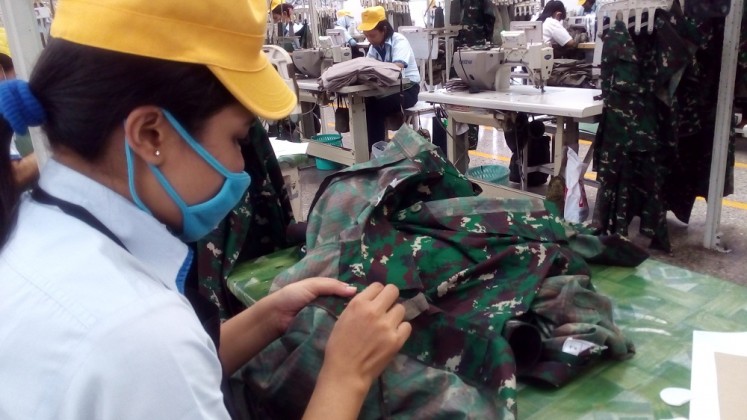Popular Reads
Top Results
Can't find what you're looking for?
View all search resultsPopular Reads
Top Results
Can't find what you're looking for?
View all search resultsIndonesian foreign policy: Between two reefs again?
You will not find Kota Kasablanka in Morocco. But you will find this year’s Conference on Indonesian Foreign Policy (CIFP) in Kota Kasablanka, Jakarta, on Oct. 20
Change text size
Gift Premium Articles
to Anyone
Y
ou will not find Kota Kasablanka in Morocco. But you will find this year’s Conference on Indonesian Foreign Policy (CIFP) in Kota Kasablanka, Jakarta, on Oct. 20 — he 2018 edition of Ambassador Dino Djalal’s amazing annual gathering on Indonesian foreign policy. It is a unique event. Thousands of young Indonesians are expected to attend. Attendance will be free and participants will be active, as if to echo Indonesia’s “free and active” foreign policy. Speakers and listeners will freely and actively convey and consider diverse views and ideas.
In most countries, people are affected more by domestic than foreign conditions and issues. Linkages to foreign affairs may not be obvious. Too often, discussions of international relations are the preserve of analysts unfamiliar with the consequences of foreign policy for everyday life. A demagog may then try to fill the gap between elite knowledge and mass experience. I wish that CIFP-comparable occasions — a set of conferences on American Foreign Policy? — were available to attract the younger generation in my own politically polarized country, especially in rural areas.
The theme of this year’s CIFP is “A dangerous drift? Ideas to fix a broken world”. One can hardly imagine a more important and timely topic. Consider the questions that it raises: Is the world really broken? If it is, how and why? Is it drifting? How and why, and toward what? How worried should we as human beings be? Most crucial of all is the call for remedial ideas to “fix” — patch? repair? revamp? — the ostensibly “broken” world that we earthlings are fated to share.
In a pamphlet in 1902, Lenin asked “What is to be done?”. His answer turned out to be catastrophic. Can we do better? What answers will be said and heard in Kasablanka?
The failure to establish an enduring peace in the wake of World War I led to World War II. Is a comparable failure to fix the world after Cold War I now incubating Cold War II? Is Indonesia again “rowing between two reefs”, as founding father Mohammad Hatta wrote in 1948 as the first Cold War got underway? Those two reefs were the United States and the Soviet Union (USSR). Now they are the US and China. (Russia is not a third reef; its economic weakness keeps it from being a full-spectrum power).
A nation that rows between two reefs is active by definition. Rowing is hard work. Especially if the boat must maintain a position of equidistance — exactly between the reefs — despite unavoidable changes in weather, waves and wind. And because the reefs don’t move, rowing between them is necessarily unfinished advice. What if the boat is rowed between and beyond the reefs — out into fast-moving wide-open foreign-policy water without fixed landmarks to be guided by? Then what is to be done?
Hatta rejected passive neutrality for Indonesia. In 1948, his main concern was creatively and flexibly to maintain the fragile independence of his newborn country, not to drop its anchor into water equidistant from Washington and Moscow and stay there. Inside the new republic, he worried more about the communist left than the anticommunist right. He qualified the case for rowing between Cold War reefs by stating that Indonesia did not and should not permanently side with either the US or the USSR, nor be permanently indifferent or neutral whenever a controversial incident arose between them. Indonesia could thus support one big power or the other with only the loosest caveat imaginable: that it not back the same single side forever.
Now and in years to come, Indonesia will do well to avoid shackling itself to a reactive-passive neutrality between the US and China. Indonesia should feel free to be free and proactive, adopting the foreign policy that best serves its interests, including its interest in helping to heal an all too plausibly broken — or breaking — and rapidly warming world.
Am I suggesting that Indonesia align itself either with the US or with China? I am not. The US is undergoing a political crisis triggered by one of the least truthful and most self-regarding presidents in American history. His resentful populist nationalism is regressive and destabilizing.
Fortunately, Indonesia and America still have democracy in common. In the US, a recent estimate summarizing multiple polls gave the opposition Democrats a 78 percent chance of replacing the ruling Republicans’ majority in the House of Representatives in mid-term elections on Nov. 6. As for authoritarian China, its increasingly repressive president has thrown off term limits and practices “debt-trap diplomacy” while incrementally annexing the South China Sea.
On a spectrum from neutrality to alliance, many foreign policies are possible. Indonesia is not and should not be content to paddle in place between two reefs. Attendees in Kota Kasablanka will have a chance to ponder their country’s role, to picture it sailing proactively in open waters (whether China claims them or not) on its own productive course — and to brainstorm and share ideas as to what that course should be.
***
The writer heads the Southeast Asia Program at Stanford University in the United States.

